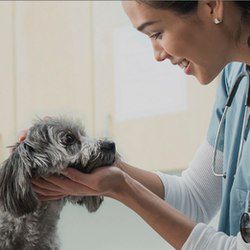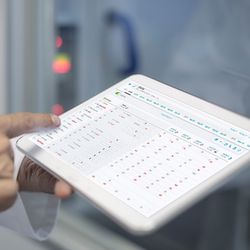IDEXX Reference Laboratories
DISCOVER MORE
IDEXX clinical pathology services
IDEXX cytology services are designed to provide accurate, timely results when you need them to make confident treatment decisions.
- Largest global network of veterinary clinical pathologists, offering their expertise to support you in making clinical decisions.
- Integrated, comprehensive reports.
- Comprehensive cytology educational resources .
- Package your specimens and slides and send to IDEXX Reference Laboratories. Choose the result service level you need, priority or standard turnaround time. Learn how >
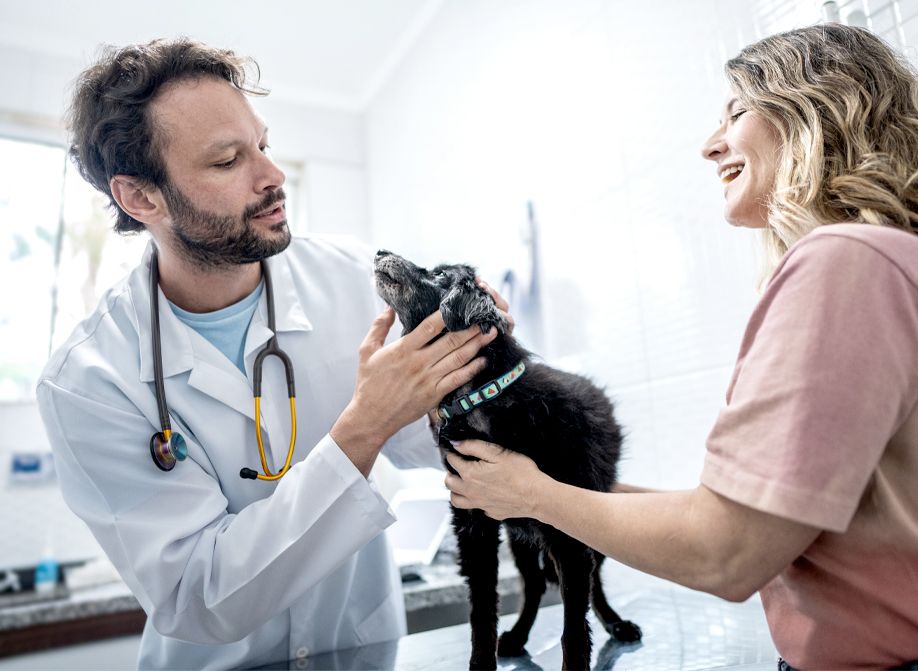
What’s new.
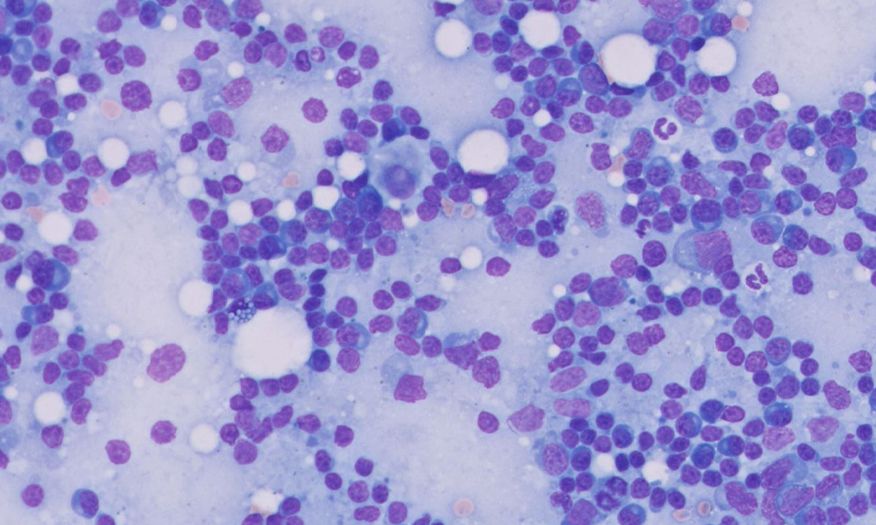
Reference laboratory submissions—lymph node cytology services
- All lymph node submissions will be processed under the new test codes.
- New test codes allow for an unlimited amount of slides to ensure the most appropriate processing of your specimen.
- Includes cytology with microscopic description for one mass or lesion and multiple lymph nodes.
Comprehensive testing services to cover even your most time-sensitive cases.
- Quick, reliable turnaround for your cases
- Personalised guidance from our team of expert pathologists
Test codes
CYTU: 1 Site/Lesion
CYTU2: 2 Sites/Lesions
See the online Directory of Tests and Services at vetconnectplus.no
for test codes for additional sites/lesions.
Results in 1–3 days (Monday–Friday)
- Personalised guidance from our team of expert pathologists
Test codes
CYTULN: Lymph Node Cytology
LNCY1: Lymph Node Cytology with 1 Other Lesion
LNCY2: Lymph Node Cytology with 2 Other Lesions
LNCY3: Lymph Node Cytology with 3 Other Lesions
See the online Directory of Tests and Services at vetconnectplus.no
for test codes for additional sites/lesions.
Results in 1–3 days (Monday–Friday)
- A concurrent CBC submission or CBC result (within 24–48 hours of marrow collection) is required for complete interpretation and clinical commentary.
Test code: CYTUKM
Results in 1–3 days (Monday–Friday)
Test codes
BCFLD1: 1 site
BCFLD2: 2 sites
See the online Directory of Tests and Services at vetconnectplus.no
for test codes for additional sites/lesions.
Results in 1–3 days (Monday–Friday)
Test codes
SYNO1: 1 site
SYNO2: 2 sites
See the online Directory of Tests and Services at vetconnectplus.no
for test codes for additional sites/lesions.
Results in 1–3 days (Monday–Friday)
Test code: CSF1
Featured case
Swollen lymph node diagnosis.
A 14-year-old, male Yorkshire terrier named Charlie presented with a firm swelling under the jaw and decreased appetite. Specimens were collected for an IDEXX CBC-Select, serum chemistry including an IDEXX SDMA Test, total T4 and complete urinalysis. Fine needle aspirates were collected from the prescapular, axillary, inguinal and popliteal lymph nodes, as well as the left mandibular lymph node. Slides were prepared from the aspirates, and all specimens were submitted to IDEXX Reference Laboratories. Diagnostics revealed mild nonregenerative anemia, mild neutrophilia, monocytosis, eosinopenia, increased SDMA, ALP, amylase and lipase levels, and decreased albumin. Charlie was diagnosed with multicentric large cell lymphoma, an aggressive form of cancer. The client declined further diagnostic testing and opted for palliative treatment with prednisone until euthanasia is chosen.

Best practices on how to make, prepare and pick the best slides for submission.
Always remember to:
- Label each slide with the patient name, date, source and preparation technique.
- Save the specimen.
- Keep 1–2 unstained slides to use if the pathologist recommends additional testing.
Read more about how to prepare slides
Accurate and timely cytology results start with good quality slides
Fine needle aspiration and nonaspiration
- Use for skin/subcutaneous masses, lymph nodes and internal organs.
- Select the technique best suited for the tissue to avoid cell lysis or excessive blood.
- Use 22-gauge needles, which work well for most tissue types.
Blood films
- Use fresh, well-mixed anticoagulated blood to avoid specimen deterioration.
- Maintain an approximate 30° angle between the spreader and specimen slide throughout.
- Spread the specimen in one smooth, steady motion.
Line smears
- Use for body cavity effusions, bronchoalveolar lavage (BAL)/tracheal lavage, and joint fluid.
- Include a direct smear; use an additional line smear for specimens with low cellularity or suspected infectious agents. If needed, use a squash prep for flocculent material.
- Submit a buffy coat and a direct film for specimens with large blood content.
Urine sediment
- Use 5 ml of fresh, well-mixed, centrifuged urine (set centrifuge to urine/400 x g).
- Maintain an approximate 30°–40° angle between the spreader and specimen slide.
- Spread the specimen halfway down the slide; stop abruptly to create a line.
Always remember to:
- Follow the recommended stain times.
- Check slides to see if additional staining is required.
- Replace stains as needed to prevent stain precipitate.
Step 1. Dip in fixative
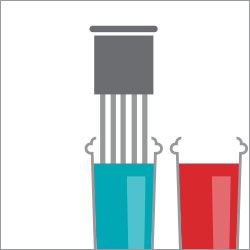
Step 2. Dip in red stain
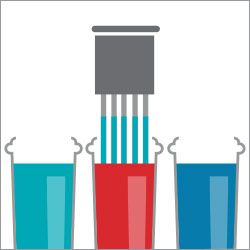
Step 3. Dip in blue stain
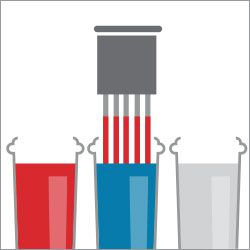
Step 4. Dip in water
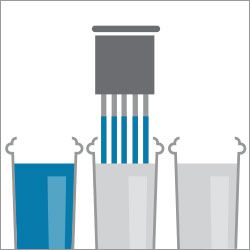
Step 5. Dip in water
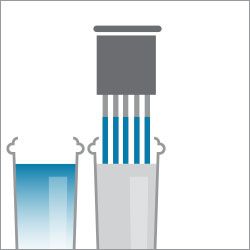
For in-depth instruction and CE credit at the IDEXX Learning Centre:
FAQs
- Leverage resources through the IDEXX Learning Centre to help your staff with optimal slide preparation to ensure they are able to prepare and select the best slides. This will not only save you time but also ensure we can provide you with timely and accurate results.
- Providing more clinical details on the request form will also assist the pathologist in providing the most accurate diagnosis for the patient and the pet owner.
- We encourage practices to reach out to the pathologist to discuss their cases. The pathologist’s direct contact information is provided on the result report.
Pathology consultation services are complimentary for IDEXX customers, even before a specimen is submitted. We encourage practices to reach out to the pathologist to discuss their cases. The pathologist’s direct contact information is provided on the result report.
Support
Documents and other resources
Access IDEXX Reference Laboratories
specimen guidelines
, IDEXX Online Ordering
, and educational resources
.
Tests and Services
Browse our tests and services to see a comprehensive list of offerings from IDEXX Reference Laboratories and save them to VetConnect PLUS so you can easily access them anytime.
IDEXX Reference Laboratories Support
We support your practice with our customer support, technical support, and medical consulting services team, including our diagnostic support veterinarians and board-certified veterinary specialists.
Call us at 24055110
.
Learn more about a specific product or service.
A representative will help you every step of the way.
IDEXX Reference Laboratories
DISCOVER MORE
Note: There may be times where weather or operational considerations cause delays in providing test results. When this happens, we will inform you as quickly as possible with the most complete information available.
